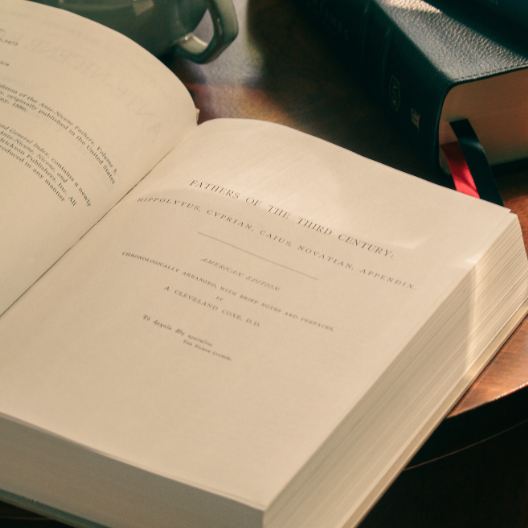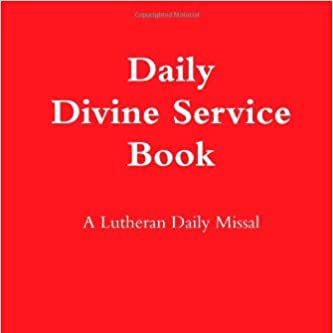Controversial but Commemorated

Born around AD 200 in North Africa, Cyprian was a controversial figure of the early Church who was best known for his pastoral and rhetorical skills. Classically educated, Cyprian was a prominent lawyer before he converted to Christianity and became a bishop in 249. His strong writing and speaking skills set him aside as one of the premier Latin writers of Western Christianity, who was only eclipsed 100 years after his death by figures such as St. Jerome and St. Augustine.
Cyprian was ordained a priest not long after his conversion and shortly before being elected bishop of Carthage. Shortly thereafter, in 250, Emperor Decius’s persecution of Christians began with his order that sacrifices must be made to the gods. Cyprian went into hiding instead of facing execution. Some clergy in the area thought that Cyprian’s response was cowardly, but he said that he hid so that he would not have to leave his faithful congregants without a shepherd.
Cyprian was also criticized for his treatment of “lapsed” parishioners after the persecution, as he thought that those who made sacrifices ought to go through a period of penance and probation before being received back into full communion by the Church. Other clergy in the area took these “lapsed” Christians back right away, creating a schism in Carthage and the surrounding area.
St. Cyprian also led a movement among his fellow clergy not to recognize the validity of baptisms performed by heretics and schismatics. Even though this was not the universal view of the Church, Cyprian led three councils of African bishops between 255 and 256 on the subject, eventually leading 87 bishops to decide unanimously that there could be no baptism outside the Church.
Yet despite these points of controversy, Cyprian was heralded for his pastoral concern and approach to issues of the day, such as his organization of medical relief after a severe plague swept through Carthage. His writings also became well known and preserved, including his famous essay On the Unity of the Catholic Church and letters on Baptism, the Lord’s Supper, and the Lord’s Prayer.
Eventually another persecution arose in Carthage, this time under Emperor Valerian. Now Cyprian did not flee, instead being arrested, tried, and beheaded in mid-September 258. St. Augustine remarked that Cyprian surely atoned for his controversies with his glorious martyrdom.

A Brief History
The Church’s commemoration of St. Cyprian extends back to the patristic era. A renowned bishop, theologian, and martyr, Cyprian’s memory was held in high regard throughout his native African Church from his martyrdom on. From there, the observance of a holiday in his honor extended throughout the Church in both the East and the West.
St. Cyprian is said to have been martyred on September 14th. Since that day is Holy Cross Day, however, he is not often commemorated on the actual date of his death. Instead, the Church has commonly celebrated him just after Holy Cross Day, with the LSB calendar assigning his commemoration to September 15th and Loehe and the Roman Catholic sanctoral calendars listing his date as September 16th.
Collect
Have regard for our weakness, Almighty God: and since the weight of our own deeds bears us down, let the faithful example of Blessed Cyprian, Thy Bishop and Martyr, direct us to Thy mercy: through Jesus Christ, Thy Son, our Lord, who liveth and reigneth with Thee and the Holy Ghost: ever one God, world without end. Amen.
Readings
Epistle
Gospel
Resources
Issues, Etc. interview with the Rev. Will Weedon on The Church Fathers in the Lutheran Confessions: Cyprian of Carthage
Issues, Etc. interview with the Rev. Dr. Joel Elowsky on Third Century Bishop Cyprian of Carthage – Dr. Joel Elowsky
Propers found in Daily Divine Service Book: A Lutheran Daily Missal, edited by the Rev. Heath Curtis
References:
1. Weedon, William. Celebrating the Saints. Concordia Publishing House. 2016.
Images:
1. St. Cyprian of Carthage, François de Poilly, France, 1665.
2. St. Cyprian and St. Cornelius, Unknown, The Netherlands, 1500-1525.
Some links might be affiliate links which means we may receive a small commission at no extra cost to you. As an Amazon Associate we earn from qualifying purchases.





[…] mentioned in our introductory post on this third-century father, St. Cyprian was well known for his eloquent writing and speaking […]